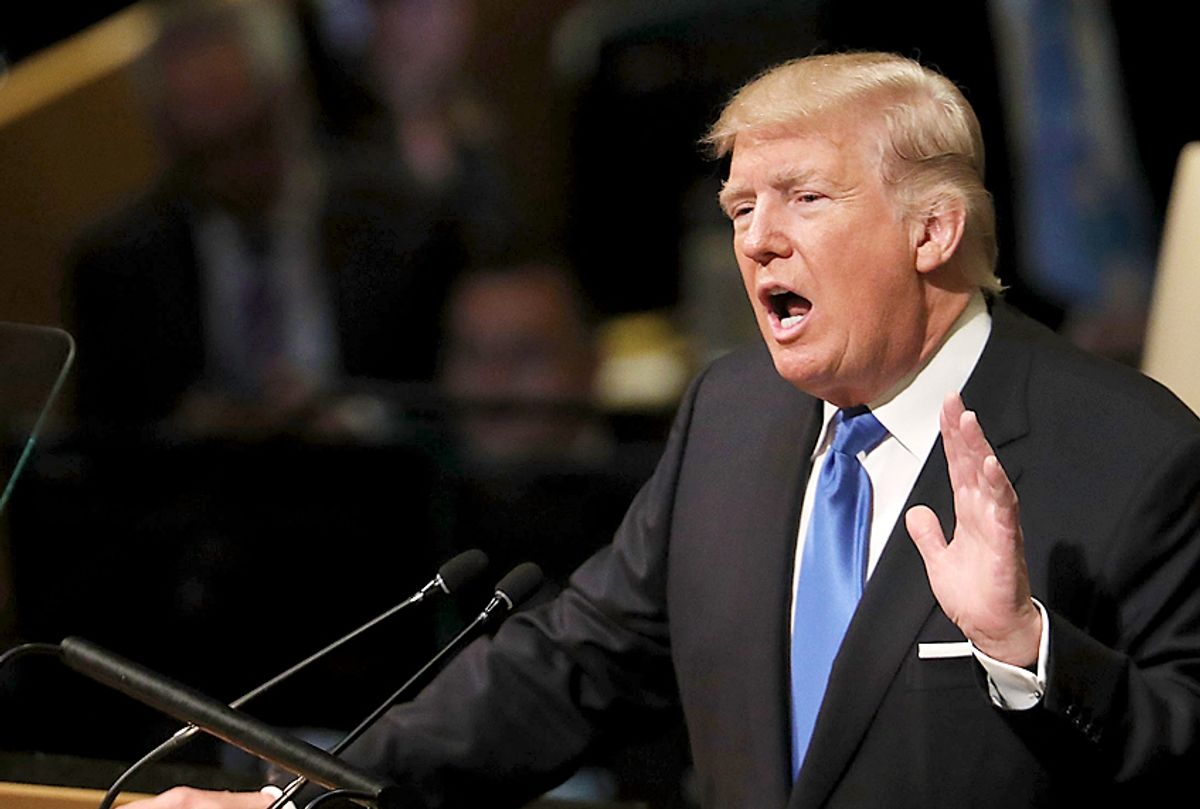Bigly. Fake news. No puppet.
Those are some phrases that have entered the English language thanks to President Donald Trump. But the president's constant butchering of the mother tongue may hurt us for a long time.
Trump is effective, cognitive linguist George Lakoff told German news site Deutsche Welle, because of his repetition. And because he tweets, and tweets often, his way of speaking has become ingrained in our lives. It's not only the language Trump uses, Lakoff said, but also because he's able to get people to focus on what he wants them to focus on. Lakoff explained:
Each of Trump's tweets is a strategy. He has four strategies. One, frame first, meaning get your understanding of the situation out there. Two, divert attention from things you don't want people to pay attention to, for example by attacking somebody else. Three, attack the messenger or assign blame to someone else and deflect it away from you, for example the press. Four, launch a trial balloon and say something outrageous, an extreme version of what you believe to see what the reaction is and if it isn't too bad you are in the clear. . .
What you do first is understand what the tweet is doing and what he does not want you to hear. Often there is some actual real news, real truths that he doesn't want you to hear. He wants to control the media. The media should not let him control them. You are not puppets — cut the strings.
But the constant repetition gets into the human brain. Lakoff pointed to George W. Bush, who talked about tax cuts using the phrase "tax relief."
"Language activates an idea and a circuitry in your brain," Lakoff said. "And the result of that is every time a circuit is activated, its synapses get stronger. So the more you hear certain things, even if you just hear and understand them, the circuitry gets stronger."
In other words, the more Trump says things, and the more he tweets, the more likely we are to start speaking like him, literally. Like someone no one has ever seen happen before.



Shares